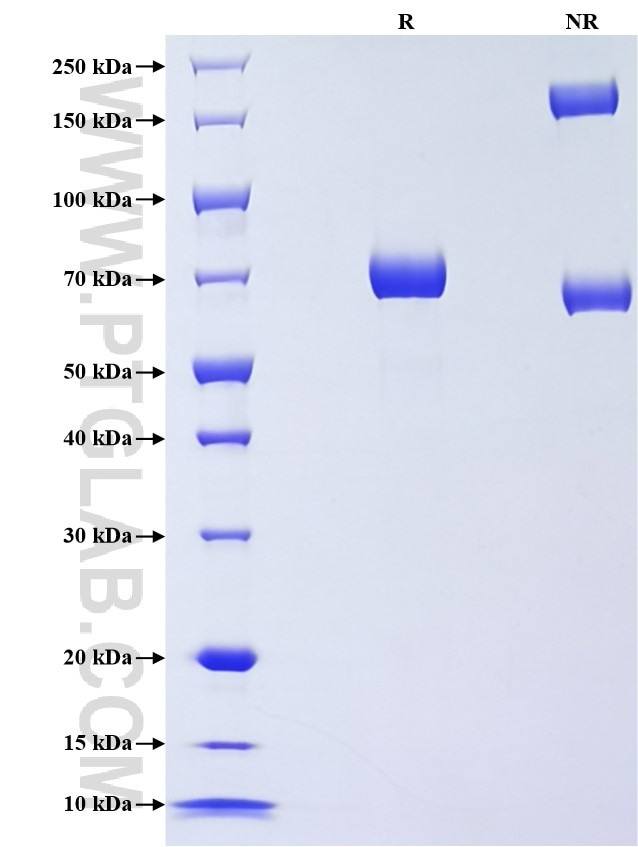Recombinant Mouse Cathepsin D protein (rFc Tag)
Species
Mouse
Purity
>90 %, SDS-PAGE
Tag
rFc Tag
Activity
not tested
Cat no : Eg2986
Validation Data Gallery
Product Information
| Purity | >90 %, SDS-PAGE |
| Endotoxin | <0.1 EU/μg protein, LAL method |
| Activity |
Not tested |
| Expression | HEK293-derived Mouse Cathepsin D protein Ile21-Leu410 (Accession# P18242) with a rabbit IgG Fc tag at the C-terminus. |
| GeneID | 13033 |
| Accession | P18242 |
| PredictedSize | 68.9 kDa |
| SDS-PAGE | 65-80 kDa, reducing (R) conditions |
| Formulation | Lyophilized from 0.22 μm filtered solution in PBS, pH 7.4. Normally 5% trehalose and 5% mannitol are added as protectants before lyophilization. |
| Reconstitution | Briefly centrifuge the tube before opening. Reconstitute at 0.1-0.5 mg/mL in sterile water. |
| Storage Conditions |
It is recommended that the protein be aliquoted for optimal storage. Avoid repeated freeze-thaw cycles.
|
| Shipping | The product is shipped at ambient temperature. Upon receipt, store it immediately at the recommended temperature. |
Background
CTSD (Cathepsin D) also named CPSD, belongs to the peptidase A1 family. It is ubiquitously expressed and is involved in proteolytic degradation, cell invasion, and apoptosis. It is a lysosomal acid protease found in neutrophils and monocytes and involved in the pathogenesis of several diseases such as breast cancer and possibly Alzheimer's disease.
References:
1. Vidoni C. et al. (2016). Med Res Rev. 36(5):845-870. 2. Ashraf Y. et al. (2019). J Immunother Cancer. 7(1):29. 3. Chai YL. et al. (2019). Brain Pathol. 29(1):63-74.

